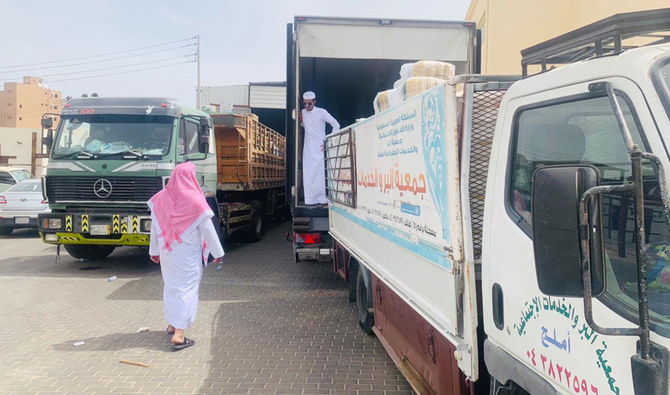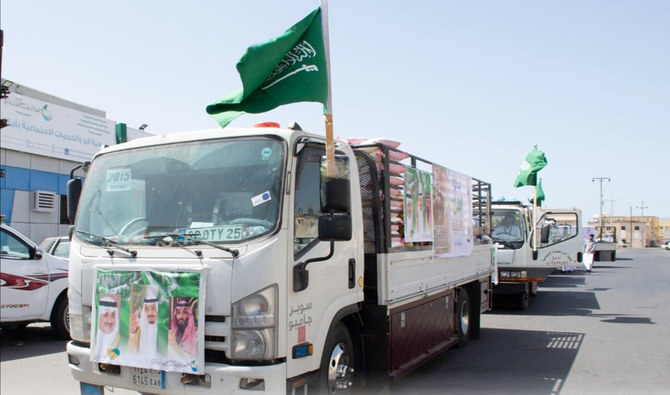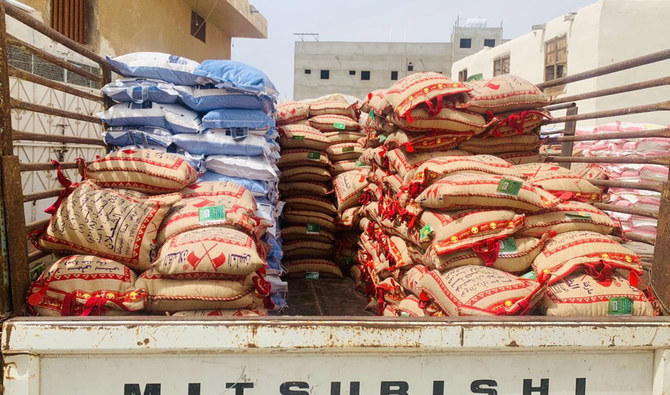RIYADH: Charities, nonprofit organizations and businesses in Saudi Arabia are providing financial aid, distributing medical supplies and raising awareness in the country in response to the coronavirus disease (COVID-19) pandemic.
The Kingdom is taking several measures to control the spread of the virus. Efforts to help people during the pandemic have emerged from civil society, as well as the country’s private sector.
Riyadh’s Ensan Charity Organization for Orphan Care has set up a website (https://store.ensan.org.sa/) where people can make donations online. In addition to the normal donation options that are available throughout the year, there is now an opportunity to purchase a “protective basket” which contains sanitizers, gloves and masks.
The Princess Seetah bint Abdul Aziz Award for Excellence in Social Work has dedicated its eighth session to “social work in the face of crises and risks” in reaction to the pandemic.
In Jeddah, preventive measures have been put in place to reduce the spread of COVID-19 at the Albir Society and ensure the safety of its beneficiaries. It is launching an online platform to further support families and the society’s chairman, Dr. Suhail bin Hassan Qadi, said 20 preventive measures had been implemented across centers and orphanages to fight the pandemic.
The Kingdom’s private sector is also contributing to the fight against coronavirus through donations to the Ministry of Health’s Health Endowment Fund. These will be used to provide the medical devices required to address the pandemic.
On Friday, the Samba Financial Group announced it was donating SR16.5 million ($4.4 million) to the fund. Riyad Bank is giving SR17 million, and Al Ahli Bank is donating SR33 million.
Other companies have also joined in, such as the Bupa Arabian Company. The insurance giant has provided $20 million to the fund to fight the spread of the virus. The Saudi Pharmaceutical Industries & Medical Appliances Corporation has given SR11 million.
HIGHLIGHTS
• Banks donate millions of dollars to fight virus spread.
• Charities, individuals offer care packages.
Not all contributions are financial. In light of school and college closures, leaving low-income students unable to access online lectures and exams, Jarir Bookstore said it would donate 10,000 laptops through official charity societies endorsed by the Ministry of Human Resources.
Individuals are also taking it upon themselves to help with virus control by providing services and goods free of charge.
Maryam Bint Hamad Al-Mutairi, a resident of Unaizah who owns a taxicab business, is delivering medicine to people in Unaizah for free. She has distributed care packages consisting of masks, gloves, and hand sanitizer, and has been honored Qassim Gov. Prince Faisal Bin Mishaal.
Al-Mutairi told local media that everything she did was and would remain free of charge, and that she had no intention of exploiting the high demand for delivery services.
“It’s not the time to be thinking of profits,” she said. “We have all benefited from the great bounty of our country, and it’s time to give back even a small part of what this country has given to us. There will be time enough to think of profit when all this is over.”
































